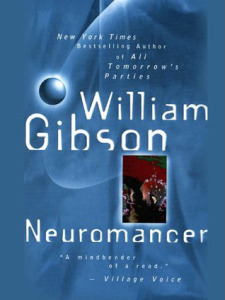Throughout the year, I will be adding some book suggestions and reviews of books that can enhance positivity. This is copied from my A Year of Books blog at www.ayearofbooksblog.com
 Many of you have likely heard of The Book of Awesome. This was written by Canadian author, Neil Pasricha who I met at The Art of Leadership Conference last year. This is an inspiring book of positivity and easy suggestions to make life easier and happier!
Many of you have likely heard of The Book of Awesome. This was written by Canadian author, Neil Pasricha who I met at The Art of Leadership Conference last year. This is an inspiring book of positivity and easy suggestions to make life easier and happier!
The book has an appealing cover and an easy cadence of text and encouraging examples. It highlights some interesting facts about happiness and being your authentic self. The book is divided into nine secrets to help readers find more happiness:
Secret # 1 – The First Thing You Must Do Before You Can Be Happy is instead of working hard to achieve success as a way to lead to happiness start with feeling happy which then leads to great work and success. Paschira gives ideas such as:
- Take walks to improve happiness;
- 20 minute replays – write to relive a positive experience
- Carry out at least 5 random acts of kindness each week (good advice for everyone)
- Completely unplug (hard to do in our world of connection with smart phones but finding time to leave the technology behind)
- Hit flow – become completely absorbed in what you are doing (mindfulness and connected with completely unplugging)
- 2-Minute Meditations – using mindfulness to improve compassion and self-awareness while reducing stress
- 5 Gratitudes – write them down each week as a way of appreciating what we have
“Happy people don’t have the best of everything. They make the best of everything. Be happy first”
Secret # 2 – Do This and Criticism Can’t Touch You focuses on “do it for you”, setting your own meaningful goals for yourself, being confident and accepting yourself.
Secret # 3 – The Three Words That Will Save You on Your Worst Days focuses on being happy with what you have, not worrying about keeping up with the Joneses (which had been an actual cartoon strip in the early 1900s) and avoiding a culture of ‘more’. The three words are remember the lottery since we have already won this lottery by being alive. Interestingly, the author also shares that the average world income is only $5000 and if you make over $50000 you are in the top 0.5% of wage earners in the world which puts ‘having more’ in perspective.
Secret # 4 – The Dream We All Have That is Completely Wrong is in relationship to retirement. It is interesting that there is such a focus on retirement yet it is so important to have “ikigai” or a reason to wake up each morning which gives life meaning and provides stimulation. Instead of retiring, Paschira talks about changing focus and to “seize the opportunity of an exhilarating second wind”. It was interesting to read about the benefits of work which “exposes us to simple joys each day”.
“We want challenges. Challenges let us contribute a sense of giving, learning, and improving ourselves and the world”.
Secret # 5 – How to Make More Money Than a Harvard MBA compares the effort and time that some individuals put into their job. A high salary with large amounts of overtime equates to a lower salary with reasonable hours when you consider the pay hourly. Less hours working can provide a better quality of life to ensure time to recharge.
Secret # 6 – The Secret to Never Being Too Busy Again highlights the need for balance and giving space to think and be creative. He writes about taking a break from a problem, doing something different like taking a walk, a bath or relaxing in bed which helps ideas percolate when we use a different part of our brain. Removing decision fatigue by automating decisions can increase time for recharging. He provided examples of individuals that bought all the same socks or a wardrobe of clothing that all matches to reduce thinking, sorting and decision-making. He discussed the importance of deadlines, sometimes too much time encourages us to procrastinate while a tight deadline inspires the work to be done. The last area of discussion was email and how this can be a ‘hot potato’ yet when a response is not forthcoming, individuals either figure it out on their own or email again if it is really important. He postulates that when you don’t write as many emails, you don’t receive and that reducing email helps create focus on what is important.
Secret # 7 – How to Turn Your Biggest Fear Into Your Biggest Success is relating to first thinking that we can do it (confidence) and wanting to do it (inspiration).
“The greatest leaders just try and try and try. They try. And then they try. And then they try some more. Sure, you will fail at some things. But you’ll keep moving. And more often you’ll succeed. Little wins turn into confidence and desire to try again, which leads to bigger wins. You gain momentum.”
Secret # 8 – The Simple Way to Master Your Most Important Relationship discusses “being you” or knowing thyself including “a total alignment of thoughts, words and actions”. This makes me reflect on the wisdom of my Grandma Davison who used to quote Shakespeare and say “to thine own self be true”. I never understood her meaning as a child but it resonates today. He encourages readers to uncover yourself by thinking about what you like to do on a Saturday morning when you have nothing to do (ikigai, finding things that spur your passion), by thinking about and testing how you feel in new situations and considering the 5 people that are closes to you in the things you love most.
Secret # 9 – The Single Best Piece of Advice You’ll Ever Take is to make your own decisions and not follow the advice of others as “the answer are all inside you”.
I enjoyed this simple focus on happiness. It is an easy read and a reminder to relax, follow your dreams and focus on what is important in life. It reinforces concepts similar books which I have reviewed:
- The Happiness Advantage (Sean Achor) shares that success does not lead to happiness but happiness leads to success. Provides 7 steps to attain this happiness.
- An Astronaut’s Guide to Life on Earth (Chris Hadfield) who writes of his experiences and his leadership lessons following his dream to become an astronaut.
- Mindset (Carol S. Dweck) describes how talent is helpful yet attitude and mindset is more important and identifies the benefits of a growth mindset.
This book is a reminder on focusing on what makes the reader happy, finding ways to make time to recharge and relax and to be true to yourself. Life requires balance and we never regret time spent doing things we love. I hope that there is another opportunity to hear this author speak and get my book signed and for now, I will reflect on the AWESOME in my life.
Share this:





